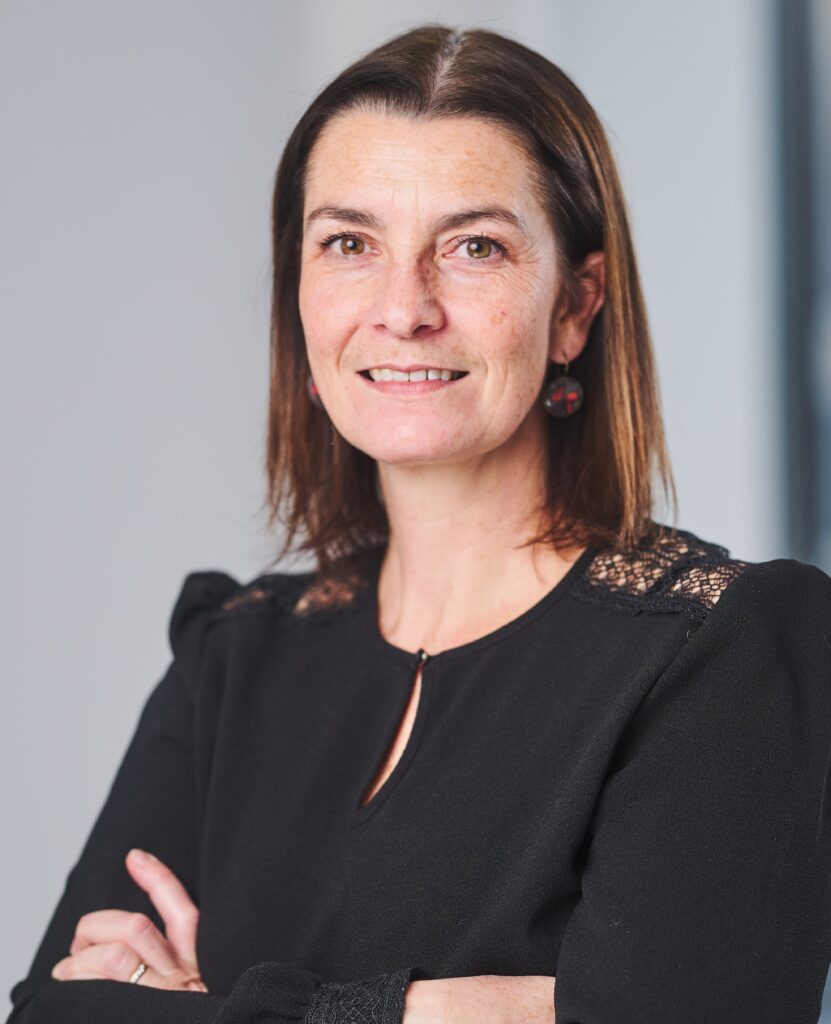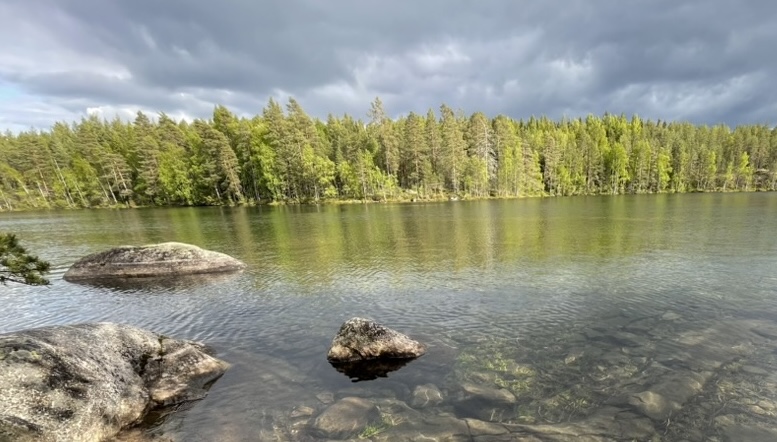The students in the Executive MBA in Strategic Management and Economic Intelligence (MSIE) program, which I have the privilege of supervising at the School of Economic Warfare, are tasked with gathering and analyzing an intercultural experience in a professional context. As part of their assignment, they must conduct interviews with practitioners and experts to shed light on the intercultural challenges at hand.
One team focused on a case set in Finland. Below is a simplified description (with details that could identify the individuals or organizations removed):
A French company and a Finnish company are about to launch a joint project. Two French managers travel to Finland to meet with the local partner’s financial director during a strategic meeting. The French team has prepared an 80-slide presentation. One of them frequently interrupts his colleague to add details, thereby extending the meeting’s duration. Throughout the entire presentation, the Finnish director remains silent. At the end, he leaves the meeting without asking any questions. The French interpret his silence as a sign of disinterest—or even failure.
 The team’s report included a fascinating interview with Marion Boberg, who generously agreed to share her rich experience in Finland for public dissemination. I extend my sincere thanks to her, as well as to the MSIE students—Jean-Yves Debaillon-Vesque, Samba Ben Moussa Diakité, and Jean-Baptiste Millet—for their excellent work. The questions below were prepared by them.
The team’s report included a fascinating interview with Marion Boberg, who generously agreed to share her rich experience in Finland for public dissemination. I extend my sincere thanks to her, as well as to the MSIE students—Jean-Yves Debaillon-Vesque, Samba Ben Moussa Diakité, and Jean-Baptiste Millet—for their excellent work. The questions below were prepared by them.
Note: The photographs of Finland (Kangasala region) were provided by Marion Boberg (except the one of Burger King sauna).
***
— Hello Marion Boberg, could you briefly introduce yourself?
MB. — I am French, currently Offer Strategy Lead (Europe region) for Orange Business. Based in Belgium, I mainly do strategic consulting in the field of customer experience.
— Where does your experience with the Finnish context come from?
MB. — My understanding of Finnish culture comes from several experiences. I went to Finland in 1999–2000 as part of an Erasmus exchange program. Initially, I wanted to improve my English. As a psychology student in France, the Erasmus destination of choice was usually England. But since my English was terrible, they told me: “You’re going to Finland!”—a country I knew nothing about. After Erasmus I returned to France to complete my master’s, then began a European joint Ph.D. supervised by a French and a Finnish professor. So I went back to Finland in 2003 for my doctoral research (“Mobile phone and Identity: A Comparative Study of the Representations of Mobile Phone among French and Finnish Adolescents”). I’ve also been living with a Finnish partner for over twenty years. I now live in Brussels, where I’ve been for two years.
A Frenchwoman’s cultural shocks in Finland
— Did you experience culture shock when you arrived in Finland?
MB. — Absolutely. Several, in fact. The first one was really the climate. The darkness was extremely hard to handle. Due to the harsh climate, Finns pay far less attention to clothing aesthetics and are much more pragmatic. And that pragmatism runs through their social relationships and work. For example, when you’re twenty and go clubbing at –30°C, you don’t wear heels—you’re pragmatic because you don’t want to freeze while waiting in line outside! That little example shows how pragmatism quickly becomes second nature.

— Does that also affect working hours?
MB. — Yes, and the rhythm of social interactions too. You can only truly understand the severity of the climate once you’ve lived there, facing the dark mornings and days when you must start work without daylight in winter. Note that in the south, near Helsinki where I lived for years after my studies, there’s more light. In any case, in Finland people start work very early and finish early compared with France or Belgium. Punctuality is crucial—Finns are often 15 minutes early. A Finn will never open their laptop at the scheduled time, but 15 minutes beforehand. And they hate when meetings run late. It’s connected, I think, to the Lutheran tradition: following the rules and laws is very much ingrained. There’s also strong respect for authority, like for teachers or the police.
— Does this strict sense of rules appear in all social interactions?
MB. — I remember when I moved into the flat I shared with three girls, one of them told me: “Don’t walk on my rug with your shoes.” You don’t keep your shoes on in someone’s home. There are rules—know them and follow them. So do some research beforehand, and also clearly explain the rules you expect others to respect, for example, in a meeting.
— Did you have other surprises?
MB. — Yes, for instance, places of worship. In France, when you think of a church, you picture gilded decor, sculptures, paintings—it’s all about grandeur. Finnish churches, in contrast, reflect their Protestant and Lutheran roots: simplicity and purity, no need to impress. It can seem less warm, but it’s meant to inspire calm and serenity. Many Finns keep all-white interiors to counteract the dark winters, since white reflects light. In summer, on the other hand, the nights are bright, and Finnish design brands like Marimekko or Iittala bring color and soft glass shapes into daily life.
— Where does this sense of sobriety and softness come from?
MB. — I think there’s a link between their relationship with space, with the body, and with language. There’s a need for “space”—in the physical environment, between people, and even between words in speech. Perhaps it’s because Finns are few in number, spread across vast natural landscapes.
— Do you recall any intercultural faux pas on your part?
MB. — Oh yes! When I first arrived, two tutors came to pick me up at the airport. I instinctively leaned in to greet them with the French-style kiss on the cheek… They both stepped back four feet! Physical contact is avoided; personal space is sacred. You need to understand that use of space: in restaurants, for instance, people sit far apart to give each other privacy.
Sauna and Finnish egalitarianism
— One common French stereotype about Finland is the sauna. Can you confirm this?
MB. — Yes, but you have to shed the French perception. We often think, “Oh, everyone’s naked—that’s sexual…” But in the Finnish sauna, nudity isn’t sexual; it represents vulnerability. It’s a cultural ritual—some go weekly, others daily—to purify oneself and relax. Everyone is on equal footing (what’s called “sameness” in English). Because everyone is naked, social distinctions disappear. Many things are also negotiated in the sauna! And it’s hard to lie or sign anything when you’re sweating naked. You look people in the eyes; it’s about equality and authenticity.

— So oral agreements weigh more than written ones?
MB. — Let’s say that in Finland you don’t necessarily need to sign a contract as you would in France. You look the other person in the eye and shake hands. A spoken agreement is like a contract. That’s why Finns weigh their words carefully—because they mean what they say. Words are scarce because they matter. The sauna illustrates this lack of hierarchy—this notion that everyone works side by side.
— How is that reflected more broadly?
MB. — Martti Ahtisaari, former Finnish president and Nobel Peace Prize laureate (2008), often said he negotiated peace deals in saunas to erase differences. Similarly, Finnish businesspeople use saunas to restore a sense of equality and vulnerability. Finnish society is generally “flat” compared with France’s more hierarchical, pyramid-like structures. Nothing frustrates Finns more than waiting months for a project to start because authorization must come from the top. In Finland, equality allows decisions to be delegated easily.
— Where does this come from?
MB. — Finland has deep agricultural roots. Though the country industrialized remarkably, that rural foundation remains. Some might think Finns aren’t as “cultivated” as the French, but they’re grounded—literally. They deeply respect nature and feel connected to it. Historical context also matters: Finland has long been geopolitically squeezed between wealthy Sweden and powerful Russia, enduring domination by both. Finns take pride in having repaid every cent of their World War II debt on time.
Finnish lessons
— Coming back to communication: you mentioned that “words are scarce because they carry weight.” Could you elaborate?
MB. — In psycholinguistics, we talk about “gap” and “overlap.” The gap is the time between one person finishing a sentence and another beginning. In French or Spanish conversations, we constantly overlap—talking over each other is normal. But in Finland, there’s always a pause. Silence has a place. To create a favorable context for discussion, it can help to let others introduce themselves first, or to do a round table before stating your own position.
— What values should one know to better understand Finns?
MB. — One big difference with France or Belgium is this hard-to-translate mix of trust and serenity. Trust means information is accurate and reliable. In Finland, people take great care to provide relevant information because it will be used by others. It’s about respect—you don’t want to cause difficulties for others. In France, people say, “Let’s call and have dinner sometime,” but often don’t follow through. In Finland, if someone says you’ll meet again, you actually will. Relationships take time to build, but once trust or friendship is established, it’s genuine and lasting—both professionally and personally. This transparency extends even to money: anyone can look up your neighbor’s salary (above €100,000) because it’s public information.
— What are the main challenges between French and Finnish people?
MB. — Many Finns struggle to do business in France. They may lack the relational finesse or small talk skills that the French expect, and can be thrown off by perceived French arrogance. My advice for the French would be: before judging behavior that seems introverted or impolite, take time to understand the culture. Consider how the harsh climate affects rhythm—Finns won’t stay three hours in a meeting if a snowstorm is forecast at 3 pm. Don’t just watch a TV show about Finland—go there in winter and experience it before building business relationships.
— What advice would you give to French professionals working with Finns?
MB. — Prepare a clear, detailed agenda with specific goals. Include not only the overall meeting time but also time for each segment. Finnish partners need to know exactly why to prioritize a meeting and when they can speak during it. The good news is that when Finns develop a project, it is delivered on time with excellent quality. There are no delays! I’ve always been embarrassed about the French engineers who took twenty years to deliver the EPR nuclear plant—twelve years late! In Franco-Finnish circles, people joked: “They didn’t know it was –30°C up there!”
— Finally, what life lessons have you learned from your Finnish experiences?
MB. — One major one is gender equality. I’ve been deeply inspired by Finnish women leaders who bring an egalitarian, non-combative form of leadership, unlike the often warlike tone of traditional masculine leadership. Another key lesson comes from my psycholinguistic work on how job seekers are supported in France, Italy, and Finland. In France, officials might say, “Come back when you speak French.” In Finland, they put both helper and job seeker on equal footing—by finding someone who speaks the job seeker’s language or hiring an interpreter. The idea is always to communicate as equals. That’s one of the greatest lessons I’ve drawn from Finnish culture: helping others meet you at the same level.
— Thank you very much, Marion, for your time and your fascinating insights.

Quelques suggestions de lecture:
- The French and the demon of theory: 3 stories
- The surprise effect, or the enemy of cross-cultural communication
- Working with the French: Indians share their experiences
- Working with the French – feedback from the field
- When details are monumental – 4 cross-cultural edifying stories
- Working with the French: 17 foreigners from 12 countries share their experiences



Derniers commentaires